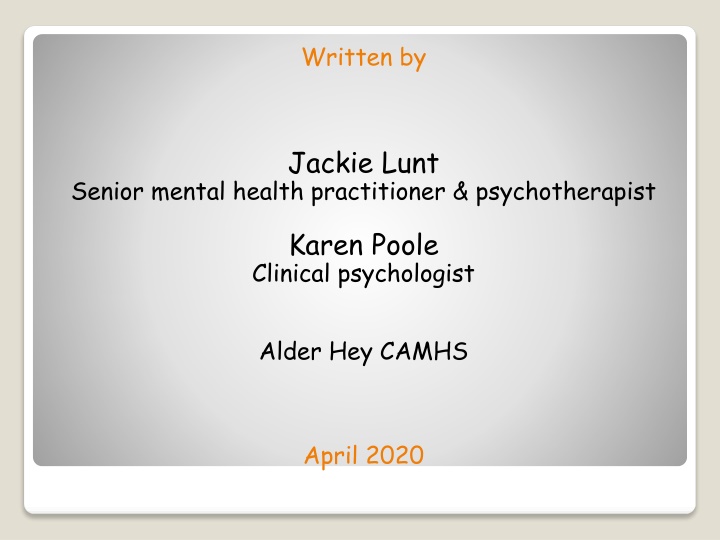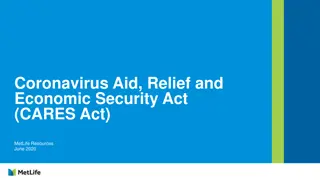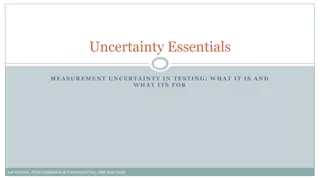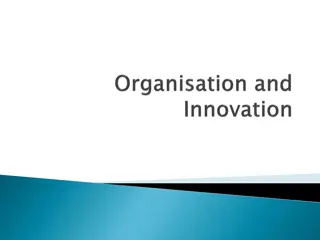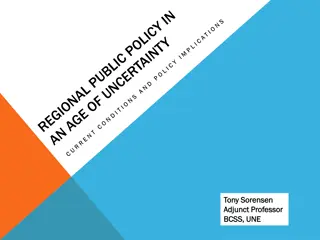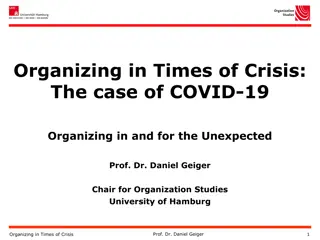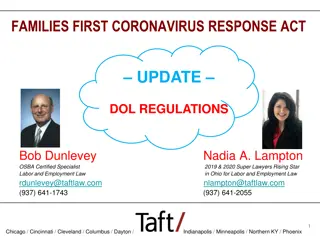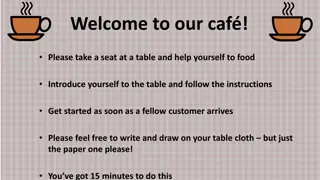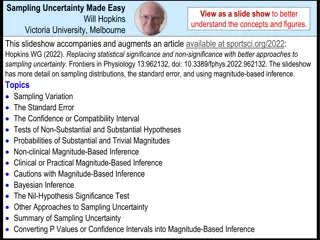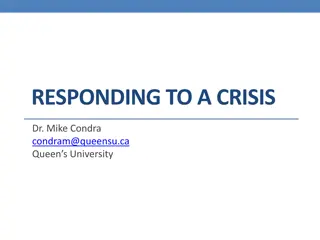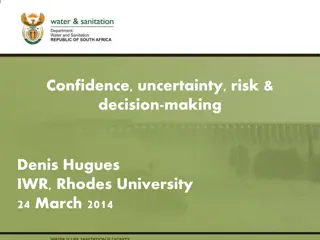Navigating Uncertainty and Change Amidst the Coronavirus Crisis
Many uncertainties and changes have emerged with the ongoing coronavirus crisis, causing stress, anxiety, and disruption to routines. Parents and children alike are facing challenges in this collective traumatic experience. It's essential to be kind to yourself, allow room for emotions, and adapt to this new normal with compassion and grace.
Download Presentation

Please find below an Image/Link to download the presentation.
The content on the website is provided AS IS for your information and personal use only. It may not be sold, licensed, or shared on other websites without obtaining consent from the author.If you encounter any issues during the download, it is possible that the publisher has removed the file from their server.
You are allowed to download the files provided on this website for personal or commercial use, subject to the condition that they are used lawfully. All files are the property of their respective owners.
The content on the website is provided AS IS for your information and personal use only. It may not be sold, licensed, or shared on other websites without obtaining consent from the author.
E N D
Presentation Transcript
Written by Jackie Lunt Senior mental health practitioner & psychotherapist Karen Poole Clinical psychologist Alder Hey CAMHS April 2020
Can we play our way through this corona crisis?
So many things are uncertain at the moment. We are hearing scary things on the news every day. This can raise stress levels and anxiety for both parents and their children.
All of our usual routines are changed. We are all experiencing Change upon change upon change upon change .
Children are not in school and are at home with their parents. Most children are not having any direct contact with their grandparents, cousins, school friends, neighbours etc. All our opportunities for direct social contact are dramatically reduced.
Most of us are really good at managing change. We have had lots of practice even with sudden big changes. Remember that change that happened when you went from being not a parent to being a parent? (Yes that was a biggie). I want to remind you that you have survived that one.
The changes as consequences of the cornona virus crisis have happened very, very quickly. And it s a global thing too.
We (all of us) are currently going through a collective traumatic experience. Trauma is often thought of as too much, too fast which is exactly what s happening. Of course you re exhausted. Of course you re afraid. Of course you re overwhelmed. Of course you re clinging to certainty in the midst of so much unknown. Of course you aren t as productive, feeling foggy, or wondering how you can possibly go through so many waves of emotions all in the same day. This all makes so much sense in the context of our circumstances. Be gentle with yourself. Have compassion for your process. Give yourself grace. You are good, no matter how you re are managing this completely new experience. Lisa Olivera
So its fair to say that we are all sailing in uncharted waters right now. Because none of us have experienced anything like this before, we are having to find our way of getting through.
These changes mean that we are all at home together more often. This is combined with having reduced opportunities to get outside and play/exercise. Parents may be working and looking after the children. ANDparents are now tasked with providing their children with some education!!!!!
Familiar? Home schooling expectation vs. reality
So lets get one thing straight Your child s teacher spent at least three years at university developing their teaching skills. They are going to be much better at this than we are!
If our childs teacher is not much better at this than us, then s/he needs to ask for a refund of university tuition fees right now!
Our job as parents is to provide children with food, shelter and meet health care needs. We also need to be providing emotional warmth, comfort and love. We don t need to be perfect with these, we only need to be good enough . Hooray!
This will be more difficult for parents to achieve when they themselves are stressed and experiencing so many changes in such a short period of time to almost every aspect of life as we know it.
We are all drawing on parts of ourselves that have never been tested like this before!
It is important that parents can take some time each day to access support with their own emotional wellbeing. As the saying goes It is vital that parents keep their own emotional wellbeing cup topped up.
There are many different ways to do this such as - talking with adult peers online or over the phone. - keeping an internal check our own levels of emotional regulation . - noticing when we may be experiencing overwhelm and need a mini brain break for a while.
There are many different ways to do this such as - not putting too much pressure on yourself to formally educate your child/ren. - be realistic about what you are going to be able to achieve under these circumstances. - Remember this is not easy .
Young children do not have the capacity to make sense of all the changes that are happening. They don t really grasp why you are now at home all the time and no one is going out anywhere.
Even more confusing you may be spending time working from home and your child can t understand why they can t just go to you when they feel they want to.
When children (and adults!) experience this sort of psychological stress they may go back to earlier stages of development. This is known as regressive behaviour . This is not necessarily something that we would worry about.
It suggests that the child may have a bit of unfinished business from and earlier stage of development. They may want to play with toys that we would consider are for a much younger age or games that they played when they were younger. Let them do this.
This may be the opportunity they have been waiting for to be at home with their parent/s doing the things they used to enjoy at an earlier stage of their life. We encourage you to make use of this potential opportunity to connect with your child.
Connecting with our children through play
We can also help children manage their levels of emotional regulation. There are lots of ways to do this. Here are a few ideas.
Changing the field of view by going outside, out onto the balcony (or if neither is possible looking out of the window) Ask your child what they can see, hear, smell, feel and taste. This sensory focussing helps to focus the mind into the here and now and lowers internal stress chemical levels.
Physical Activity Give children plenty of opportunity to be active. Being physically active and moving the bigger muscles in the body can have a calming effect on the mind. Children who find it difficult to remain calm will benefit from having the opportunity to safely let this out via body movement. Regular short breaks to move about and be physical can help children stay within an emotional comfort zone.
Use the idea of prescribing the behaviour So for example - if you have a child who hits out frequently you may give them something soft to throw into a bowl and have some fun with this. You may use cotton wool balls or scrunched up balls of newspaper etc. Everyone can join in with this.
Breath control We know that the out breath is the relaxation breath. Anything that makes the out breath longer than the in breath will take you towards a more relaxed inner state. Simply by extending the length of the outward breath we can begin to lower the levels of stress chemicals in the body.
Door breathing yes honestly door breathing!
Notice your breath. If possible breath in and out through your nose. Try to completely focus on the door and your breath. Keep breaths in and out at the same speed. Focus your vision on the top left corner of the door. Breath in as you move your gaze, slowly, along the top of the door. As your gaze arrives at the top right corner pause for a second before moving your gaze down towards the bottom right corner. As you are doing this breath out.
As your gaze arrives at the bottom right corner of the door pause for a second. Move your gaze slowly to the bottom left of the door whilst breathing in. As you arrive at the bottom left corner of the door pause for a second before slowly moving your gaze up towards the top left corner of the door. Breath out as you do this.
Repeat this at least 3 times to start to lower internal stress chemicals. Older children and adults may benefit from doing this for longer periods of time. This is a meditation. The more you do this the more relaxed you are likely to feel. Remember being stressed can be a habit and it takes time to change to a more relaxed way of living.
This door breathing exercise is a meditation. If you found this useful you can find loads more by simply doing a google search. We are almost at the end of this workshop. We would like to thank you for your participation and wish you good luck in these difficult times. On the last page of this work shop we give you the titles of some really useful books that will help you take ideas of playful parenting further.
Suggested further reading. Fortune, J. (2018). 15 Minute Parenting. Gill Books; Dublin. Norris, v. & Rodwell, H. (2017). Parenting with Theraplay. Jessica Kingsley; London. Webster-Stratton, C. (2005). The Incredible Years. A Trouble-Shooting Guide for Parents of Children Aged 2 8 years. Incredible Years; Seattle.
